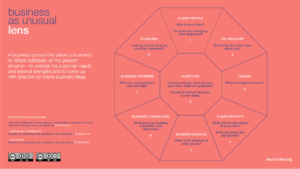How We Restarted Our Business After COVID-19 Put It To Sleep

Elina Zheleva is CEO of launchlabs Sofia., a business design studio that helps companies build agile teams and create innovative, customer-centric experiences for their clients. Launchlabs Sofia is part of an international network with offices in Berlin, Basel and Bangalore.
Four weeks ago, I woke up in Malta. It was my birthday. I was happy and oblivious. At least until the news started flooding in. While my birthday was officially on, it seemed like everything else was cancelled. To begin with, our flight back to Sofia was cancelled. More precisely, it was indefinitely cancelled. A conference in Moscow I was supposed to speak at was definitely cancelled. A next-week team meeting in Berlin – got postponed to October. Even our dinner reservation got cancelled. And so were the assignments from our clients. All of them, without exception, had either cancelled or postponed the work we do with them. COVID-19.
Our mission as a business redesign studio is to work together with companies through business as unusual by melting different design and agile disciplines. We redesign mindsets through trainings, experiences through sprints and spaces through space design. We’re experts in design thinking, scrum, service design, future thinking and a bunch of other fancy methodologies. We work with both local and Fortune 500 companies in various industries. All of our work typically requires in-person interactions. Now, nothing personal, they said, but we have to cancel. That was the birthday present I never asked for – a new, remote-only, world.
As a business owner impacted in such a drastic way, I saw two binary outcomes – shut down or reinvent. Maybe there were more, but I didn’t overthink. I chose the latter. These are the steps we followed, the lessons we learnt so far, and my personal business prophecy for the future.
Step 1
Putting on your own mask first: switch to remote work from today for tomorrow
One of the first things we decided to do, as a team of 10, was to prepare ourselves for remote work. We made a list of the things we have done through the years, and started redesigning them for remote: facilitation of agile teams, leadership meetings, brainstorming sessions, new product testing sessions, design sprints, strategy roadmap meetings, customer journey improvement projects, brand value workshops. The list goes on.
We looked for patterns and created a flexible framework for remote facilitation that could work for various projects. We then tested more than 20 different online platforms and combinations thereof, in order to create the closest possible scenario to an effective live interaction. We made internal tests, and tests with clients. We spent 100% of our resources on prototyping, testing and improving. Until we were really good.
To become perfect though, we knew we had to help others. That was the next step.
Step 2
Helping others around you: equip your clients for remote work
We synthesized our knowledge about remote work and we put together a pro-bono webinar – a sort of first aid kit for newly remote teams. Initially, we offered it to our clients and then opened it to other businesses. It was the first such webinar in Bulgaria and we’ve helped hundreds of teams so far to work better remotely. Why? Because we believe that work should go on. It’s the quickest way to get us out of this crisis.
At first, when we started exploring remote work, we weren’t aiming for anything more than just reaching some level of normalcy in remote interactions. But as we dug, we got hooked. And once we went deep, we started asking better questions. Why should remote work be like normal? Why can’t it be better?
Remote work is nothing new, turning it into an everyday, interactive, effective and delightful experience – is. While buying a Zoom subscription and reactivating the company’s Slack channel might work for some teams, for most remote work means getting accustomed with several new platforms.
We currently use a combination of Slack, Trello, Mural, Spotify and all the video conferencing applications. Most of the companies who attended the pro-bono webinar, used less platforms, but quickly appreciated the interactiveness of combining multiple platforms and screens.
And while the technology and getting used to it matters, much more important are the new flows for remote work and the team rituals. The daily standup, the backlog review, the virtual coffee break or occasional happy hour. Next to the right technology, they add transparency, accountability and fun in our workdays.
As a team, we’re still learning. It requires mindfulness and discipline. Trial and error. The important bit is that we cannot proceed to stabilize and grow our businesses if we cannot work remotely – technically and emotionally. It has to become our second nature for us to move on at speed. That’s why we’re paying so much attention to it. And so should everybody who is new to remote work.
Step 3
Rethink your product portfolio: narrow down to the essential and digitize from scratch
Next thing we did was to review our portfolio and identify our new digital portfolio. We knew it cannot be the same as our normal portfolio. We knew that our clients’ needs are different, so we needed to accommodate. If I take as an example our training portfolio – we have a very popular product – our Design Thinking Academy which is a 3-day interactive classroom training. Last year alone we delivered it in 45 destinations around the world. It’s intense, it’s hands-on, it’s fun.
Could we replicate it online? Probably. Should we? I don’t think so. In an article from two years ago, about what will save us from the next crisis, Richard Eckelman wrote: “Economic factors dictate a focus on the essentials, not the frills.” So as a business we needed to decide what is the essence and what is the frill.
Here is an example of a classical brick-and-mortar operation – a wine and cheese shop, which to save its business has to go online. Think about buying wine and cheese in a shop. What are the moments that matter to the customer? Is it the wine tasting? Is it the pairing? Is it the conversation with the sommelier? Now think about the e-shop. How do we recreate a tasting moment online? Do we have to? What are the things we can’t do in the real world, but we can in the digital? Do we even have to have an e-shop? How else could we use our resources to create value for our customers and generate revenues? Who are our customers? Are they even the same?
We went through a similar process when we thought about our portfolio. We analysed our clients’ new situation and we recognised early on that our most popular product is not in demand, not now. We identified the key projects that our clients will be working on and prepared to facilitate them remotely. To put it in Eckelman’s words – we narrowed down our portfolio to what was essential.
Once we started thinking about our new digital service i.e. remote facilitation of important project workshops, we didn’t think how we would typically do it in a project room. We thought about how we would do it through a combination of video conferencing, interactive whiteboards and messaging channels. The rule we followed – in digital, we design from scratch. This prevents us from literally digitizing an analog service, with all its complexities, into a digital one. It allows us to create a meaningful end-to-end experience.
Step 4
Reflecting and sharing lessons learned
This whole process made us think a lot about the meaning of digital – not only how to deliver our services digitally, but how we could transform into a digital company and the opportunities this brings in terms of market. But most importantly, going through this process taught us about the meaning of teamwork and positivism. The importance of being one, helping each other and hoping together for the best.
As a business owner and a leader, there were also lessons. Unexpected realizations that made me think that we were always ready for this situation we just didn’t know about. Three things stood out that made me rethink how we could work in the future:
- We like unknown territories – our work, no matter how innovative and challenging, is still “our work”- our known territory, the moment we drop people into unknown territories we see a spark in motivation. Especially when the goal is to help others.
- We do better with single, open-ended tasks – our work life is so busy and we tend to multitask, once the daily to-do list is diminished to “become the best in X”, people really deep dive and the result is very effective. Essentially we all like being superheroes.
- We are suppressing our own creativity when times are good. Emergency situations call for bold ideas. In such situations, the invisible lid that suppresses the bravest ideas is suddenly removed and people go all the way. I saw it with our own team. We have never been so curious, productive and creative.
The question is how to keep the lid removed?
Step 5
Developing the Business as Unusual Lens
One of the things we designed to help us and other companies impacted by the crisis, to stay positive, focused and creative, is the Business as Unusual Lens. Inspired by the classical Business Model Canvas, the Business as Unusual Lens helps us look at our company’s situation with a positive lens and find new customer needs, new customer segments, reusable resources and know-how, and potential partnerships that we can make.
We tried the lens in a workshop context, where we coupled it with ideation tools like the creative matrix and it works great. But we also tried it as a simple conversation exercise. Just going through the questions – from 1 to 9 and talking about it helped the business owners see light in the tunnel. And while the lens cannot predict the future it helps us bet successfully.

There is an episode in our history where the bets were on the city of Constantinople. It refers to the surrounding of the capital city of the Byzantine Empire by the invading Ottoman army in 1453. Back in the days, it was normal for leaders to use the so-called court astrologers – sky readers who would predict the outcome of the battle and the future of their Empire. On the night when Constantinople was conquered by the Ottomans, the Roman court astrologer saw a blood moon in the sky and said to Constantine XI “It’s a bad omen”. The same night the Ottoman astrologer saw the blood moon and said to Mehmed II “It’s a good omen”. And while positive thinking alone didn’t win the battle – it helped build confidence and a tactical action plan that changed the course of history.
That is what we’re aiming with our work around the Business as Unusual Lense – to combine a positive view with a meaningful business review and an action plan for the next steps. Because our personal business prophecy is that the actionable and the optimists will come out stronger. Or to quote Jim Harter’s latest research for Gallup:





























